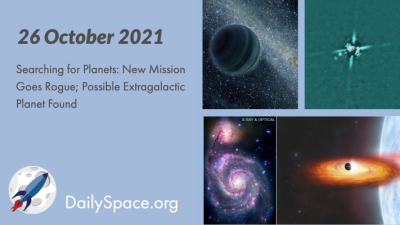
Oct 27, 2021 | Daily Space, Exoplanets, Galaxies, Guest Interview, Observatories, Saturn, Spacecraft, Supernovae
A proposed mission called the Contemporaneous LEnsing Parallax and Autonomous TRansient Assay, or CLEoPATRA, seeks to work with the Nancy Grace Roman Telescope to find rogue planets not orbiting any star. Meanwhile, a possible planet has been discovered in the Whirlpool Galaxy and could be the first planet found outside the Milky Way. Plus, an interview with Dr. Margaret Meixner, Director of Science Mission Operations for the SOFIA telescope.
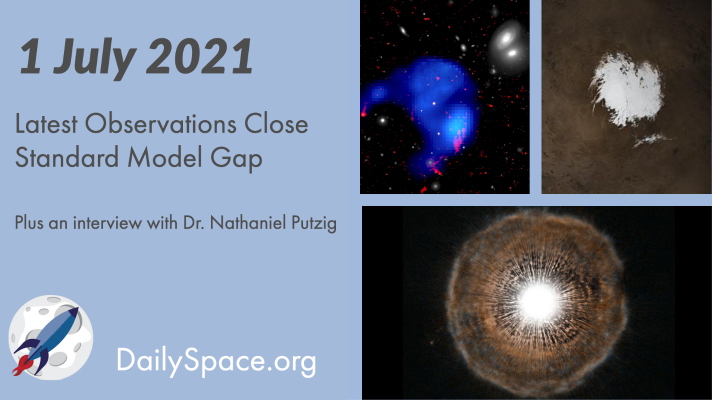
Jul 2, 2021 | Cosmology, Curiosity, Daily Space, Galaxies, Guest Interview, Mars
In a new paper, a renowned physicist’s overview of recent observations shows that the gap in the universe expansion calculations is closing. The Standard Model may be fine after all. Plus, Mars’ methane mystery, an orphan cloud, galaxies moving to collide, and an interview with PSI’s Than Putzig about just what is under Mars’ south polar ice cap.
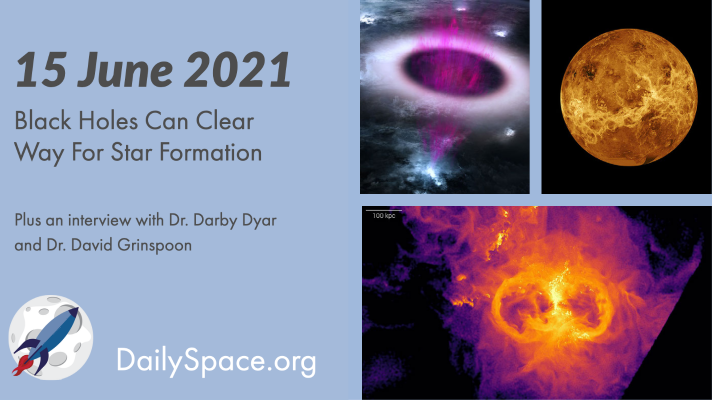
Jun 16, 2021 | Climate Change, Daily Space, Earth, ESA, Exoplanets, Guest Interview, Spacecraft, Stars, Supermassive Black Holes, Venus
Contrary to the destructive role supermassive black holes are thought to play in the lives of stars, it turns out that certain types of galaxies benefit from black holes clearing the way and keeping star formation going. Plus, lightning at the edge of space, a landslide in the Himalayas, and an interview with Dr. Darby Dyar and Dr. David Grinspoon about the recent selection of three different Venus missions.
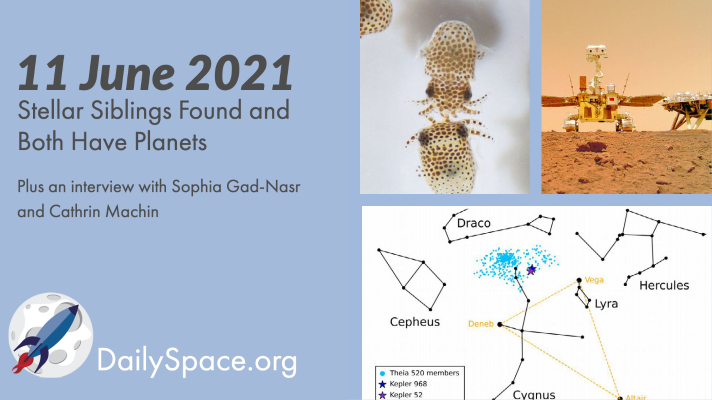
Jun 14, 2021 | AAS, Daily Space, Exoplanets, Guest Interview, Mars, Rovers, Spacecraft, Stars, Zhurong
Two seemingly unrelated stars, each with several exoplanets, turn out to be members of an enormous, diffuse star cluster. Plus, baby squid go to the ISS, new images from China’s Zhurong rover, a brightening blazar, and an interview with scientist Sophia Gad-Nasr and artist Cathrin Machin about how art and science work together.
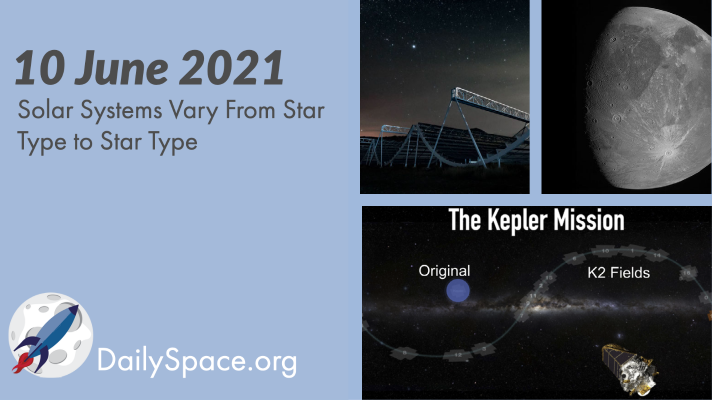
Jun 11, 2021 | AAS, Daily Space, Exoplanets, Fast Radio Bursts, Guest Interview, Jupiter, Kepler, Planetary Nebulae, Planets, Spacecraft, Stars
In new research, scientists examined the populations of stars observed by the Kepler and K2 missions and found that the solar systems were different depending on the type of star involved. Plus, CHIME results, a brown dwarf’s atmosphere, a stream of stars in the Milky Way, and an interview with PSI’s Dr. Candice Hansen about the recent Ganymede flyby of NASA’s Juno spacecraft.
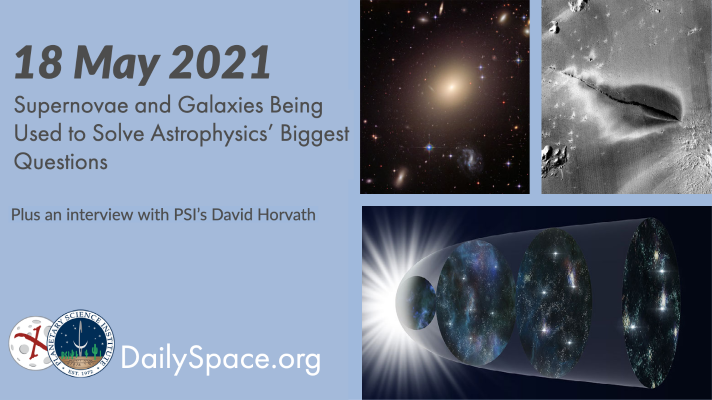
May 19, 2021 | Black Holes (Stellar), Daily Space, Dark Matter, Galaxies, Gemini North, Guest Interview, Mars, Neptune, Physics, Stars, Supermassive Black Holes, Uranus
Two new studies are attempting to solve a couple of big puzzles in astrophysics: Is the Hubble constant actually constant? And why do galaxies have flat rotation curves? Plus, a young star’s circumstellar disk, the search for stellar-mass black holes, magnesium in the deep waters of Neptune and Uranus, and an interview with PSI scientist David Horvath regarding possibly active volcanism on Mars.








 We record most shows live, on Twitch. Follow us today to get alerts when we go live.
We record most shows live, on Twitch. Follow us today to get alerts when we go live.